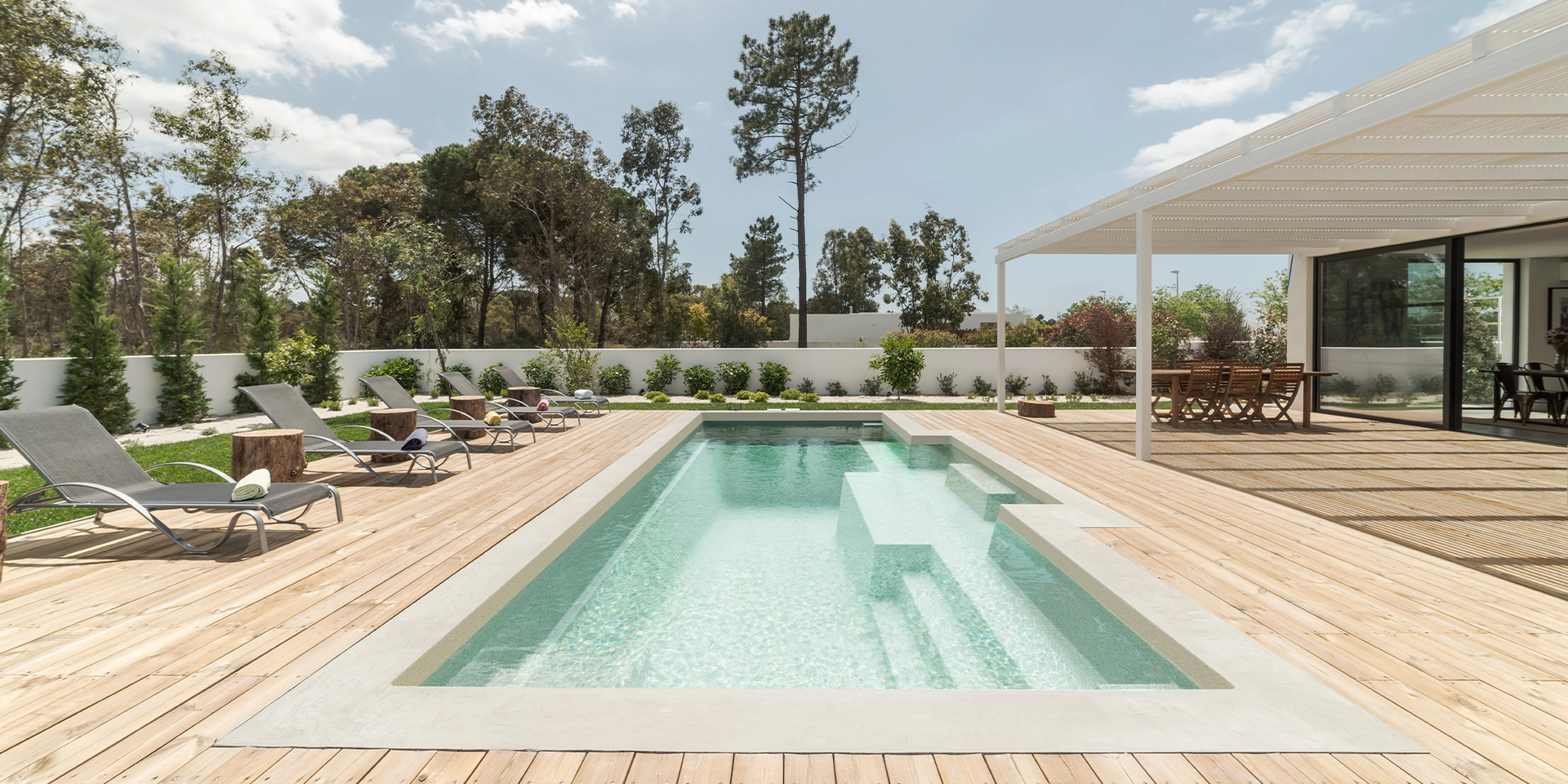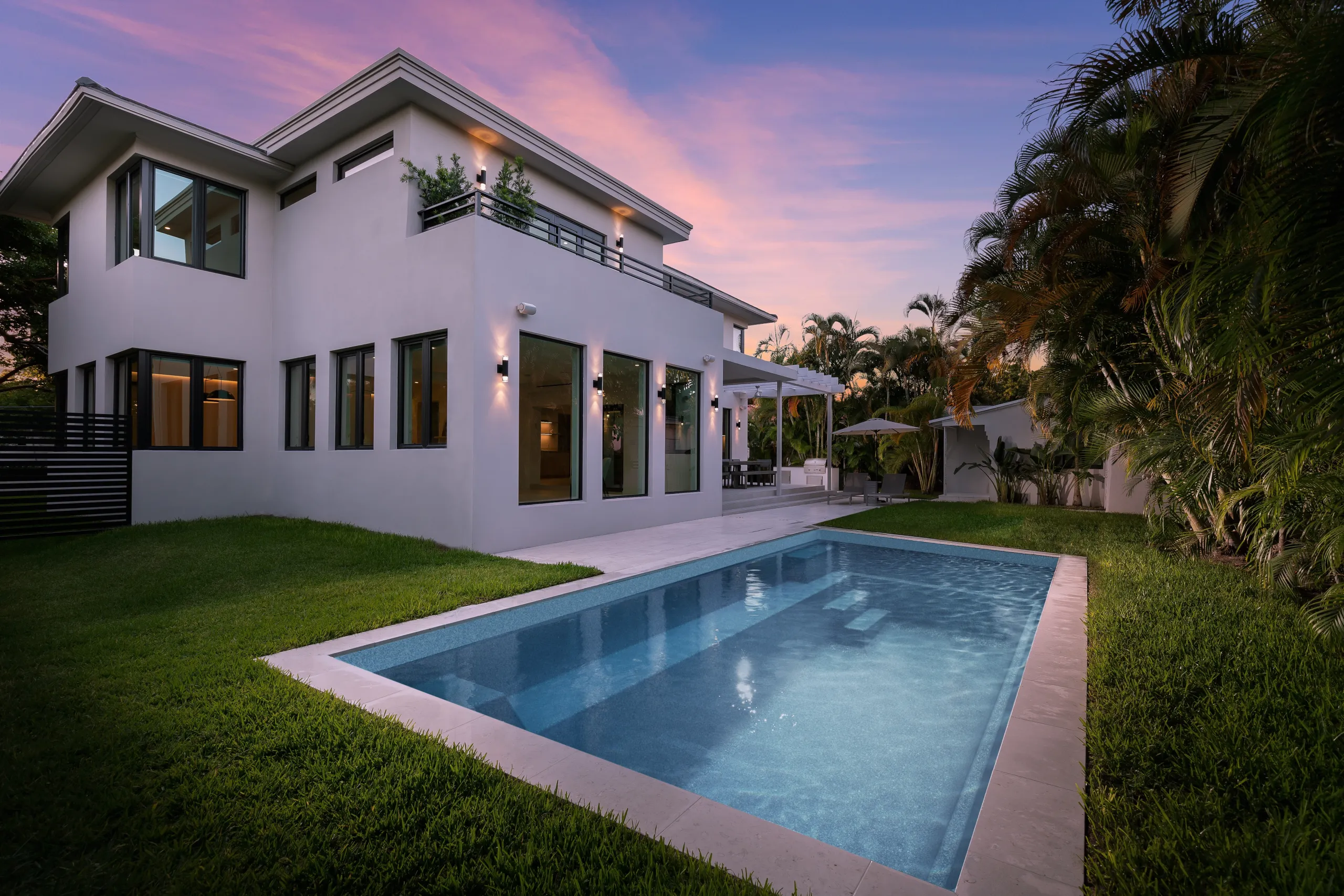
Fibreglass, Vinyl or Concrete Pools: Which is best?

In This Article:
When it comes to choosing an inground pool, you have three options: vinyl liner, fibreglass, or concrete. Each type of inground swimming pool comes with its own set of advantages and disadvantages. In this comprehensive guide, we’ll explore the differences between fibreglass, vinyl, and concrete pools:
Advantages of Fibreglass Pools
- Durability: Not all fibreglass pools are created equal. The most advanced Fibreglass Pools are constructed using the highest quality resources available in the market. These fibres offer exceptional strength and longevity, ensuring your pool’s durability even under extreme conditions. With minimal maintenance, a fibreglass pool made from these components can serve you for decades. At Nexus Pools, we stand behind our products with a Lifetime Structural Warranty and a Lifetime Structural Osmosis Warranty.
- Low Cost of Ownership: Evaluating the cost of ownership is crucial when considering an inground pool investment. Over a 10-year period, fibreglass pools, offer the lowest cost of ownership. While the initial cost may be slightly higher than vinyl liner pools, the lower maintenance costs and extended lifespan of fibreglass pools make them a more cost-effective choice.
- Speed of Installation: Fibreglass pools, offer the quickest installation time, allowing you to enjoy your pool sooner. Fibreglass pools can be ready for swimming in as little as 2-3 weeks, while vinyl liner and concrete pools can take considerably longer.
- Compatibility with Salt Systems: With the increasing popularity of saltwater pools, it’s worth noting that Fibreglass Pools, are an excellent choice. They are impervious to the corrosion that saltwater can cause over time, which can be problematic for vinyl liner and concrete pools.
- Low Maintenance: Fibreglass Pools, thanks to their smooth and non-porous gel coat surface, require minimal maintenance. Unlike concrete and vinyl liner pools, fibreglass pools are less prone to dirt and algae build-up, reducing the need for frequent scrubbing and cleaning.
- Low Lifetime Cost of Ownership: Over a 10-year period, Fibreglass Pools, offer the lowest lifetime cost of ownership. Their durability and low maintenance requirements make them a cost-effective choice in the long run.
- Warranty: Fibreglass pools typically come with comprehensive warranties, some even offering a lifetime warranty. This is because they are manufactured with cutting-edge quality and craftsmanship, ensuring peace of mind for pool owners. In contrast, vinyl liner and concrete pool warranties often cover specific components for a limited time.
Disadvantages of Fibreglass
- Limited Pool Shapes and Sizes: One drawback of fibreglass pools is their limitation in terms of shapes and sizes. If you desire a large pool with intricate features, such as a swim-up bar, fibreglass may not offer the customization you need.
- Initial Cost Higher than Vinyl Liner Pools: While fibreglass pools may have a slightly higher initial cost compared to vinyl liner pools, the long-term cost savings make them a more economical choice over time.
Now, let’s briefly explore the advantages and disadvantages of vinyl liner and concrete pools:

Advantages of Vinyl Liner Pools
- Initial Lower Cost: Vinyl liner pools are the most budget-friendly option for those looking to enter the inground pool market.
- Ability to Customise: While limited in shape and size compared to concrete pools, vinyl liner pools offer more customization options than fibreglass.
Disadvantages of Vinyl Liner Pools
- Vinyl Liner Replacement: The most significant drawback is the need for frequent liner replacement, typically every 8-10 years. Improper water chemistry maintenance can accelerate liner wear and damage.
- Warranty: Vinyl liner pool warranties often contain ambiguous clauses and may not offer extensive coverage for the pool structure.
Advantages of Concrete Pools
- Complete Customisation: Concrete pools allow for complete customization in terms of size and shape, making them ideal for those seeking unique designs.
- Durability: Concrete pools are durable and less susceptible to punctures or tears.
Disadvantages of Concrete Pools
- Most Expensive Pool to Own: Concrete pools come with the highest initial and ongoing maintenance costs, making them the most expensive option.
- High Maintenance Costs: Concrete pools require significant maintenance, including regular acid washing and resurfacing, which can be costly.
- Use More Chemicals: Maintaining proper water chemistry in concrete pools often requires more chemicals compared to vinyl liner and fibreglass pools.
- Abrasive Interior Surface: The rough surface of concrete pools can be uncomfortable for swimmers and wear out pool cleaner parts quickly.
- Longest Installation Time: Installing a concrete pool can take considerably longer compared to fibreglass pools.
In summary fibreglass pools offer a compelling combination of durability, low cost of ownership, quick installation, and low maintenance. While they may have some limitations in terms of customization, their long-term value makes them a top choice for many pool owners. Vinyl liner and concrete pools, on the other hand, come with their own set of advantages and disadvantages, with concrete pools being the most expensive and high-maintenance option. Your choice ultimately depends on your budget and specific preferences. If you have any questions or concerns about Nexus Pools, feel free to contact us for professional guidance.